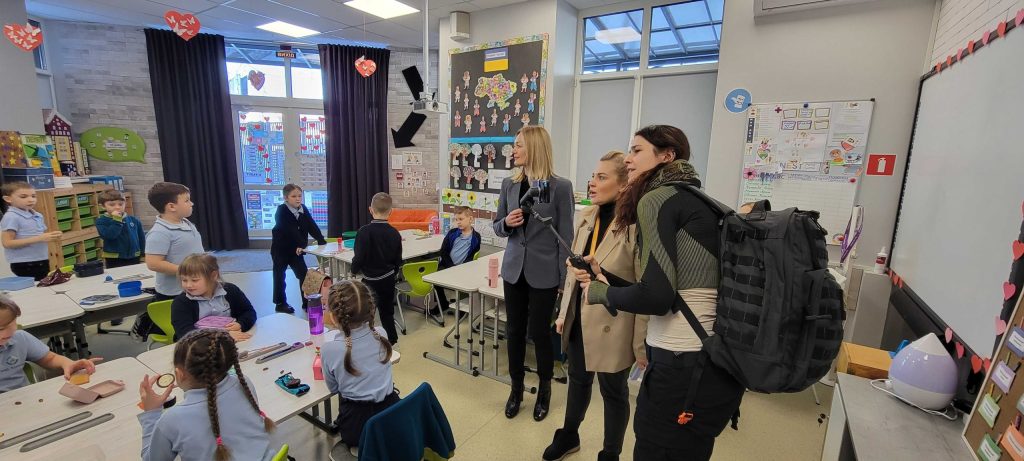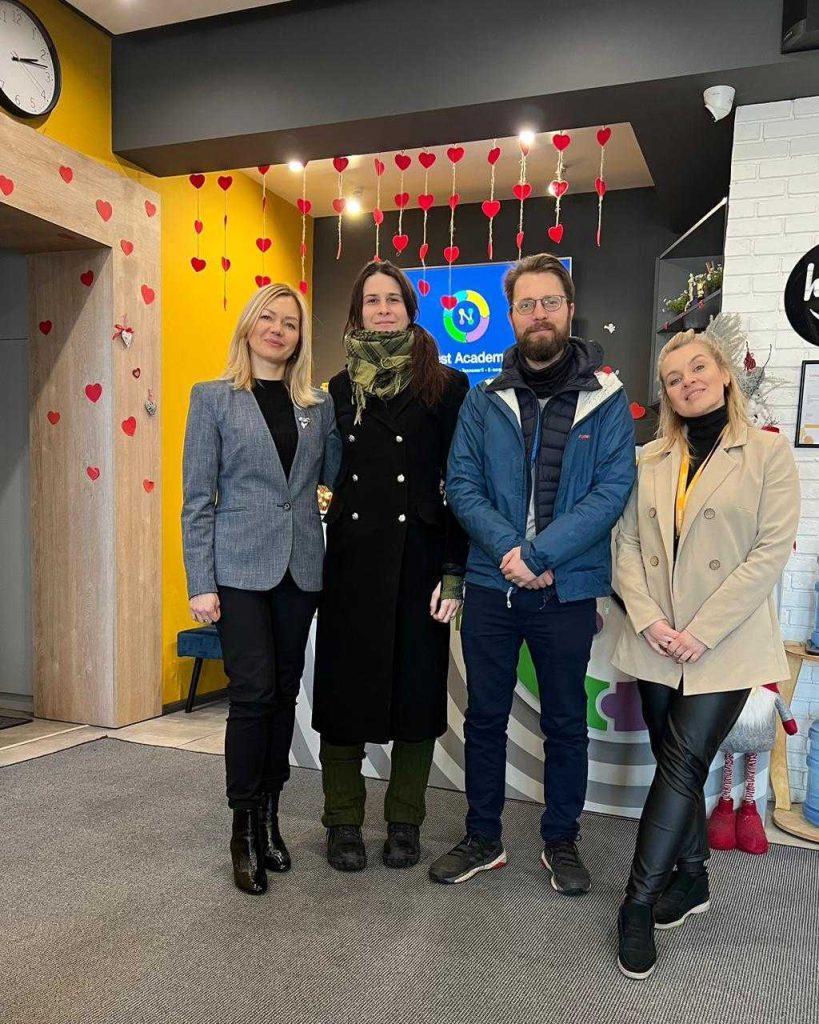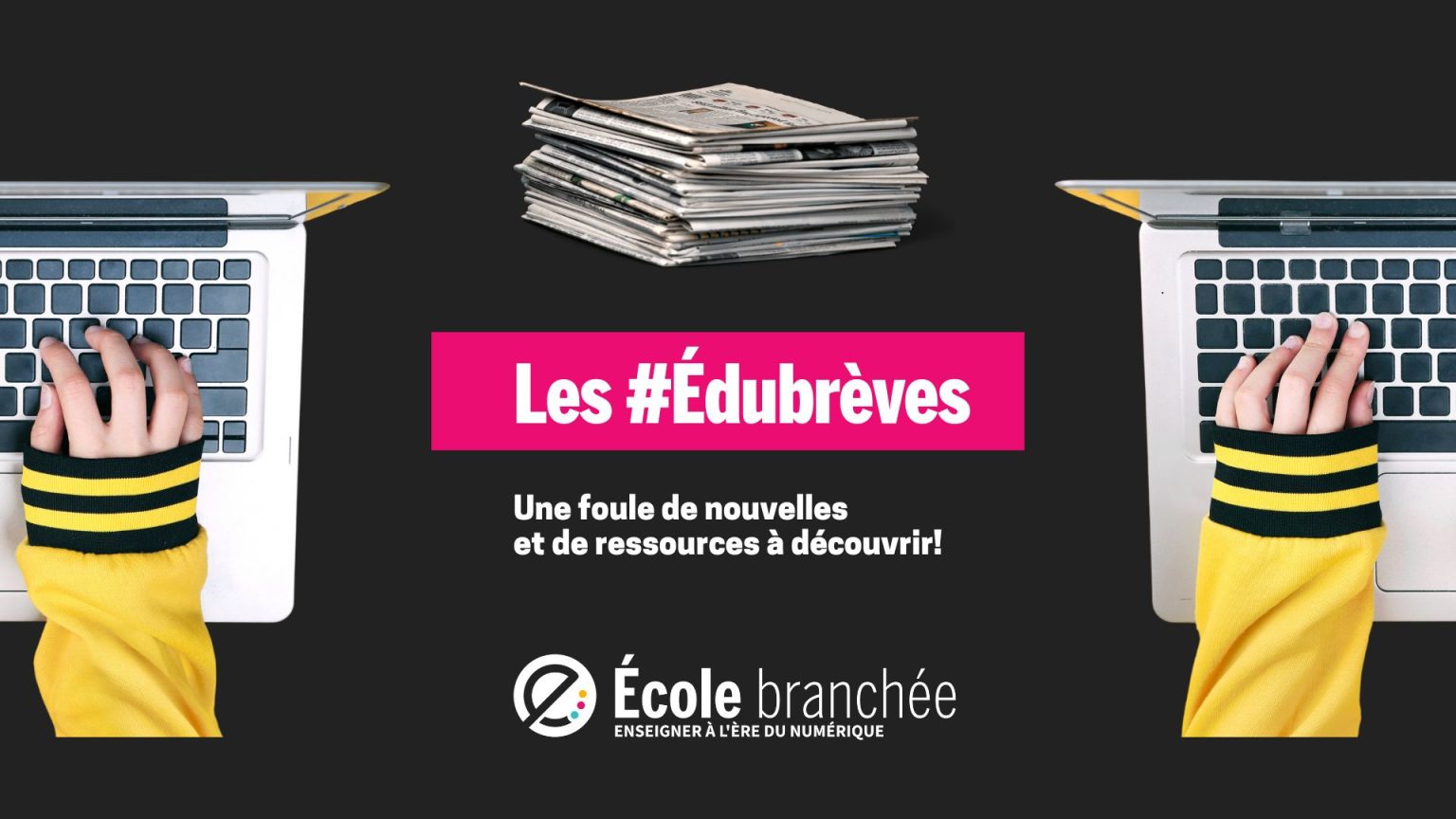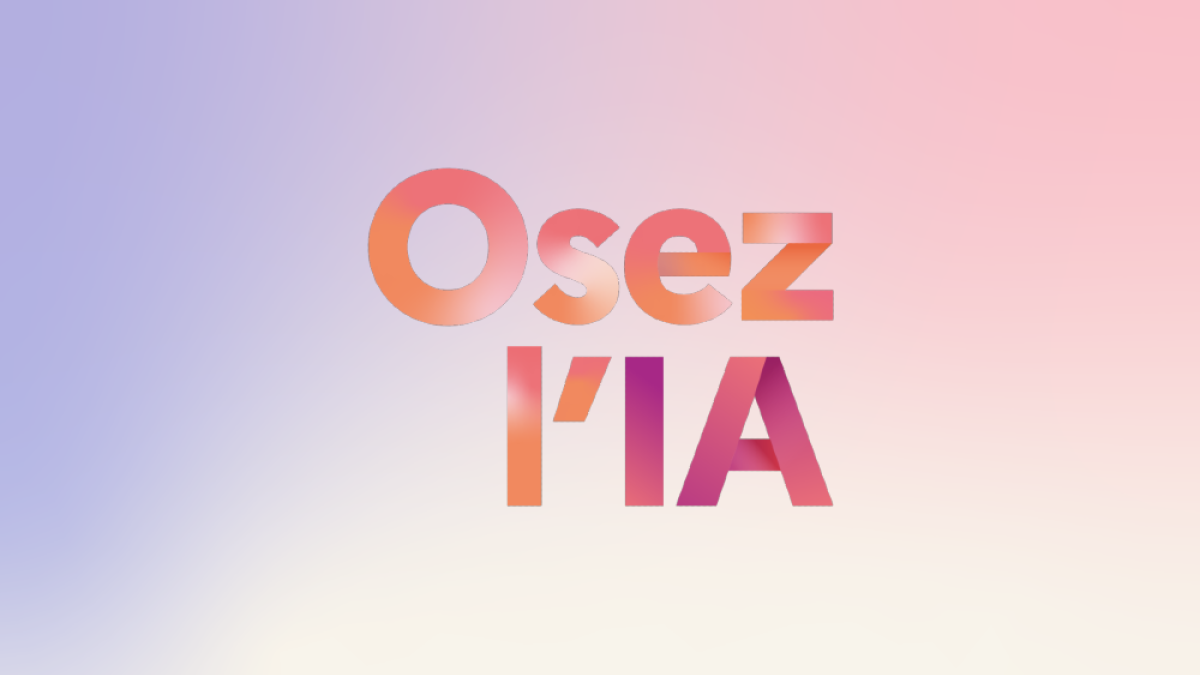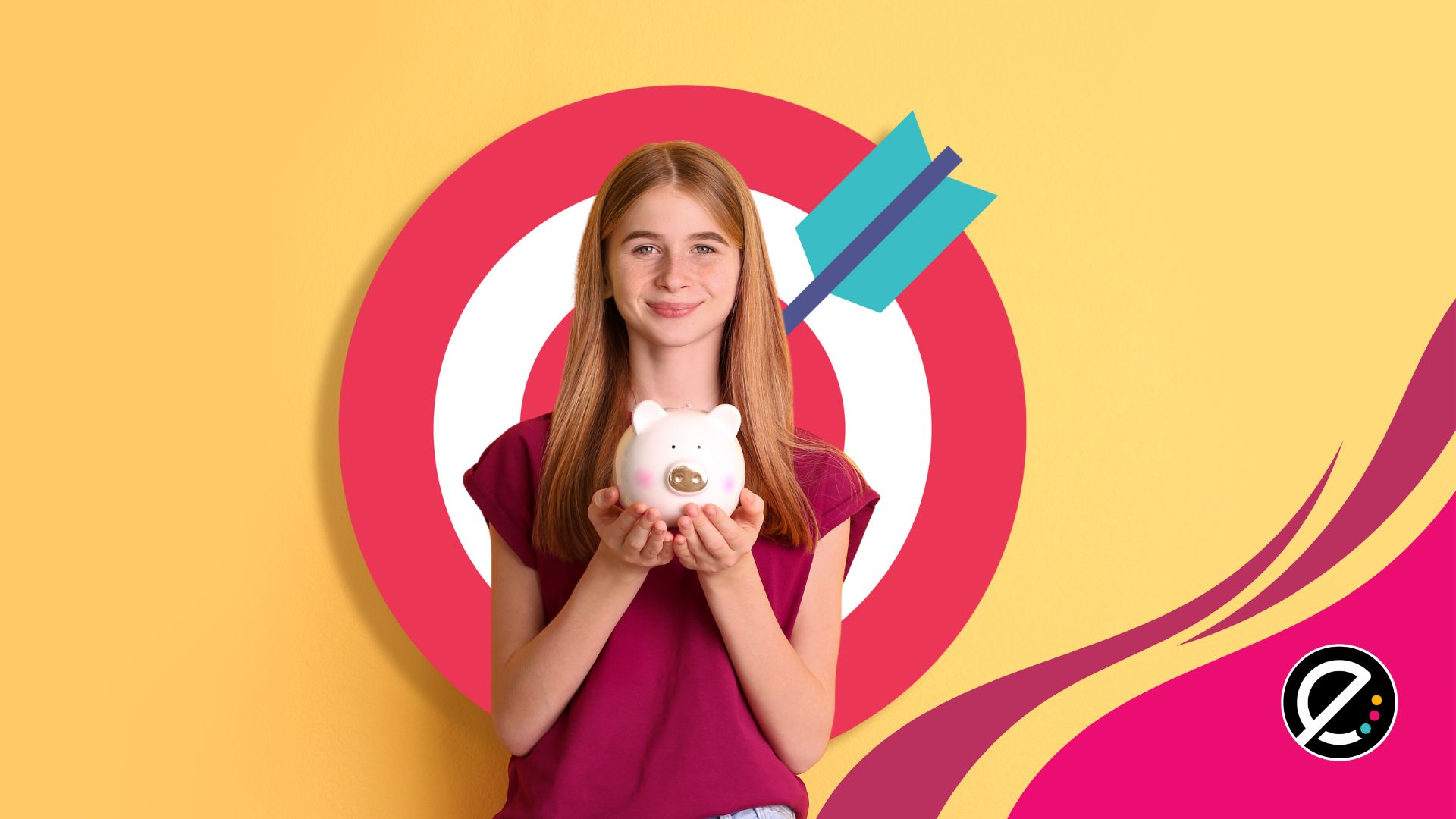Un an après le début des hostilités en Ukraine, les citoyens tentent tant bien que mal de continuer à vivre « comme si tout était normal ». Les écoles sont ouvertes et le personnel enseignant poursuit l’éducation des enfants. Des initiatives d’entraide émergent dans différents milieux. Nous en avons parlé avec un collaborateur, Valentin Kravtchenko, alors qu’il se trouvait à Kyiv.
Valentin Kravtchenko est né en Ukraine et a immigré avec sa famille à Montréal au début des années 1990. Il est aujourd’hui président et directeur général de Grey-box, une startup d’innovation sociale qui met en place des bornes wifi portables donnant accès à des contenus éducatifs. Celui qui se définit comme un nomade numérique a déjà déployé des projets dans plusieurs régions du monde. Pour lui, il était normal de se rendre en Ukraine pour agir sur le terrain. « Il faut être sur place pour entrer en contact avec les gens, comprendre leur réalité et se mettre en mode solution avec eux. »
Il y a quelques jours, il a visité la Nest Academy, une école primaire privée située à Kyiv, où les enseignants s’inspirent beaucoup des pratiques pédagogiques du Canada. « Ils s’éloignent du modèle traditionnel de l’enseignant qui transmet de l’information et des élèves qui apprennent par cœur, modèle qui est encore très présent ailleurs dans le pays. » L’académie offre un enseignement bilingue (ukrainien et anglais) dans un format intensif, c’est-à-dire que la moitié des cours sont en anglais, peu importe la matière.
Même si l’établissement a perdu environ 40 % de ses élèves depuis le début du conflit, les activités sont maintenues. « Garder les enfants occupés et engagés, c’est particulièrement important en ce moment. » L’environnement est toujours stressant; le sous-sol est sécurisé et tous peuvent s’y réfugier en cas d’alerte. Néanmoins, l’équipe-école effectue un travail constant autant pour rassurer les jeunes que pour leur permettre de poursuivre leurs apprentissages. Des efforts sont également faits avec les parents pour contrer la désinformation qui prévaut autant en ligne que dans les rues.
Du matériel informatique est disponible (tablettes, ordinateurs et tableaux blancs interactifs) dans l’école. Les ressources éducatives se font plutôt rares, faute de moyens financiers pour payer les licences d’utilisation. Constatant cette réalité lors de sa visite, Valentin a lancé un appel aux membres de l’Association Edteq. Depuis, des entreprises québécoises en technologies éducatives ont accepté d’offrir des licences d’utilisation de leurs produits disponibles en anglais. C’est le cas notamment d’eduMedia, de Nanomonx et d’Ululab.
La technologie pour faire le bien
Lors de notre discussion, Valentin nous a parlé de différentes initiatives en lien avec les technologies qui prennent forme un peu partout en Ukraine. « Tout passe par la technologie. C’est l’expression du “tech for good” à son meilleur. Les liens sont maintenus entre les personnes grâce à leur téléphone cellulaire. Il est facile de géolocaliser des services. Les codes QR sont nombreux pour accéder à des informations. »
Il a donné en exemple un mouvement mené par la Fondation Wikipédia pour accélérer les efforts de traduction en ukrainien des pages de l’encyclopédie en ligne. « On voit la force du numérique. Les gens se mobilisent rapidement autour de certains projets. »
Il est possible de suivre pratiquement en temps réel des données statistiques sur la situation vécue sur le terrain via différentes plateformes de données ouvertes qui sont alimentées par des organismes et des citoyens. Il devient plus simple de trouver des services humanitaires, de savoir quel type d’aide est offert à quel endroit, etc.
Le service ReliefWeb Response (RW Response) du Bureau de la coordination des affaires humanitaires des Nations Unies (OCHA) est alimenté de façon constante. Le Ukraine Data Explorer est un outil de visualisation de données qui présentent des statistiques utiles, tout comme le service LookerStudio de Google.
Plus de 12 millions d’Ukrainiens ont quitté leur domicile depuis un an. Pour ceux qui restent, les alertes de sécurité sont nombreuses et la vie n’est pas simple. Néanmoins, l’entraide est au rendez-vous et tous ceux qui le peuvent participent aux efforts pour continuer à vivre le plus normalement possible.
En complément : Une vidéo tournée à Nest Academy



